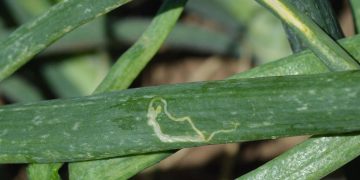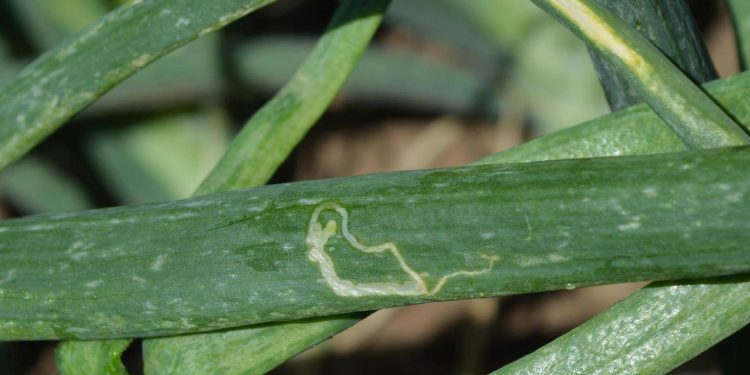PlantVirus, #AlliumCrops, #FoodSecurity, #AgriculturalResearch, #IntegratedPestManagement, #BiocontrolAgents
Iris Yellow Spot Virus (IYSV) is a plant virus that affects various Allium species, including onion, garlic, and leek. The virus, which is transmitted by thrips, causes significant damage to crops, resulting in yield losses and reduced quality.
The development of IYSV is a major concern for farmers and agricultural researchers worldwide. As the virus continues to spread and infect more crops, it poses a threat to food security and economic stability. The virus is particularly problematic in areas with high thrips populations and in regions where Allium crops are grown intensively.
The consequences of IYSV development are far-reaching. Farmers experience significant financial losses due to reduced crop yields and quality, while consumers face higher prices and potential food shortages. The virus also affects the environment, as farmers may use more pesticides to control thrips populations, which can have negative impacts on beneficial insect populations and soil health.
To address the IYSV outbreak, researchers are working to develop new methods for detecting and controlling the virus. This includes the development of resistant Allium varieties, the use of biocontrol agents, and the implementation of integrated pest management strategies. Additionally, farmers are encouraged to use good agricultural practices, such as crop rotation and proper thrips management, to reduce the risk of IYSV infection.
The development of IYSV is a significant challenge for the agricultural industry. However, with continued research and collaboration between farmers, researchers, and policymakers, we can work towards mitigating the devastating effects of this virus on our food systems and the environment.































